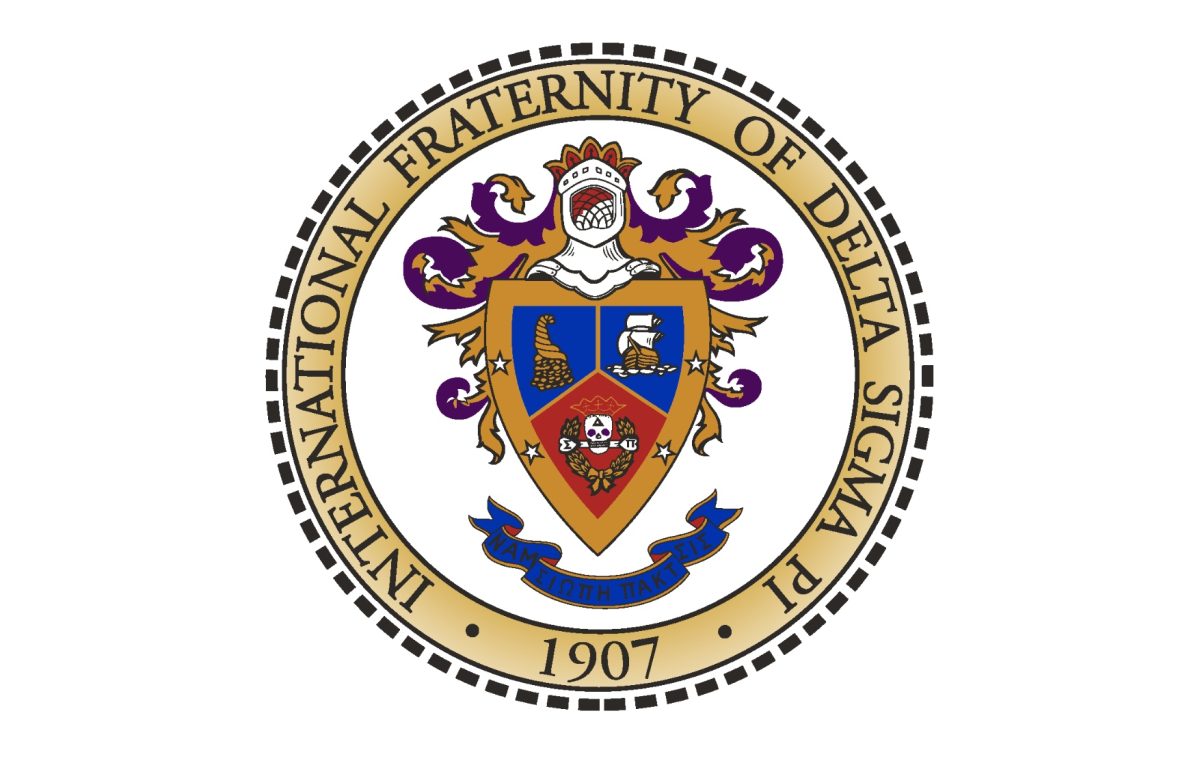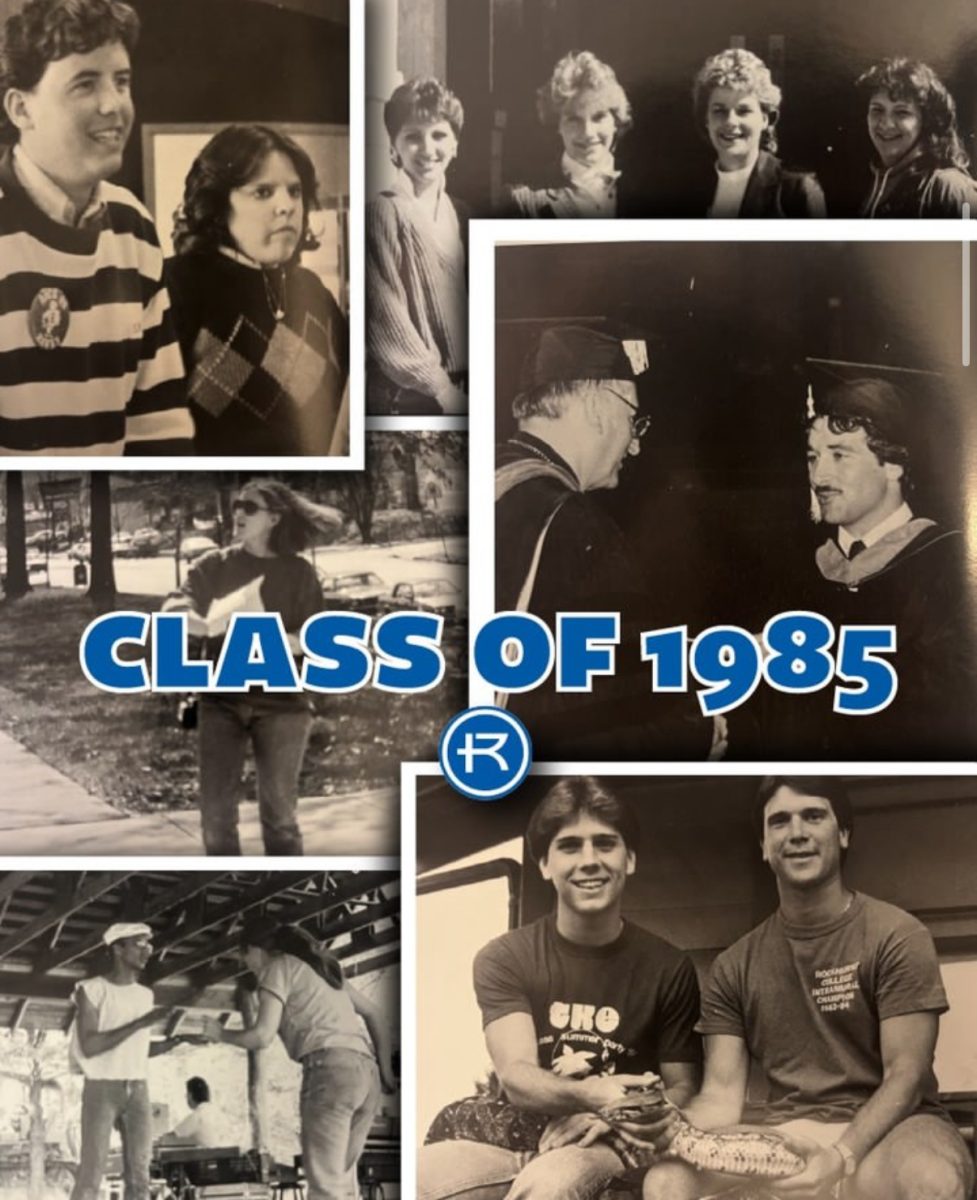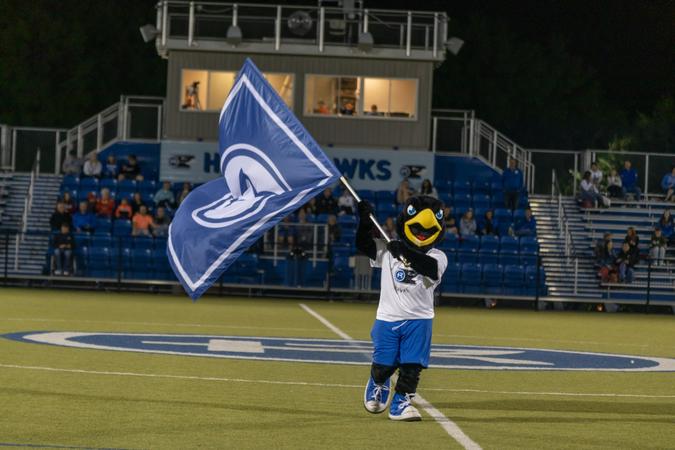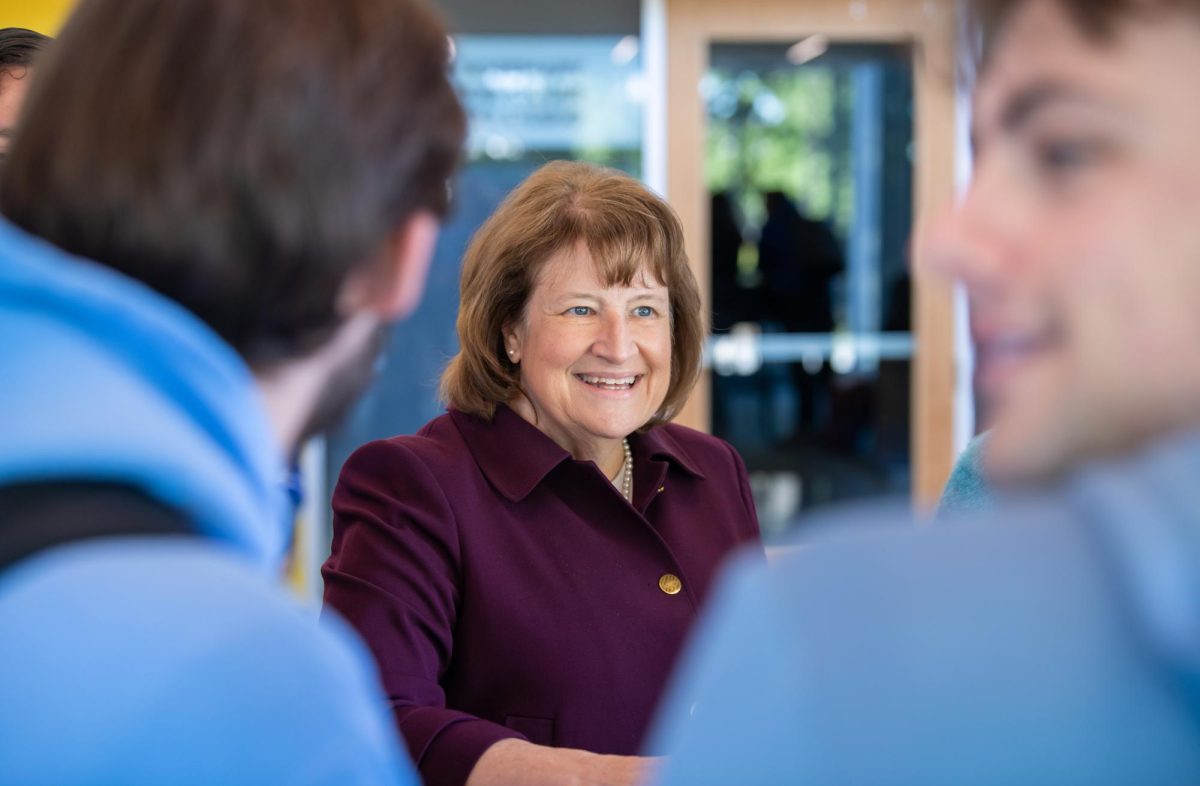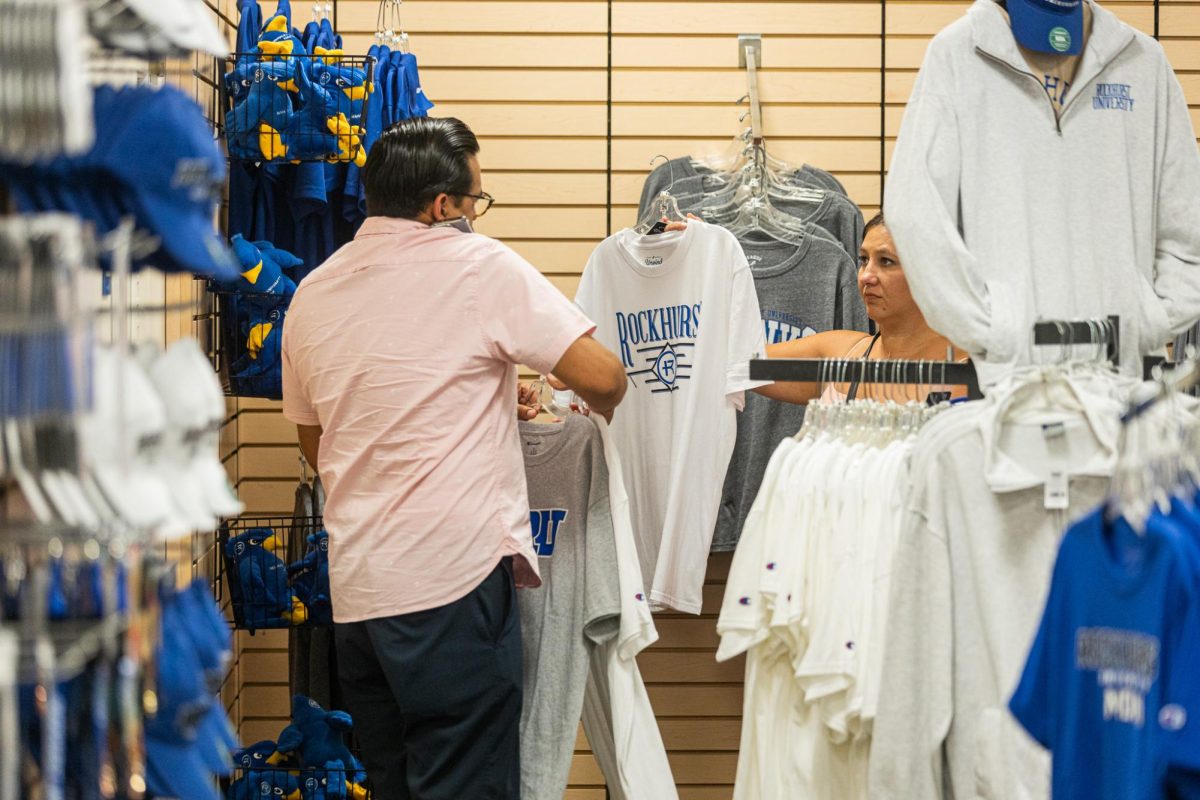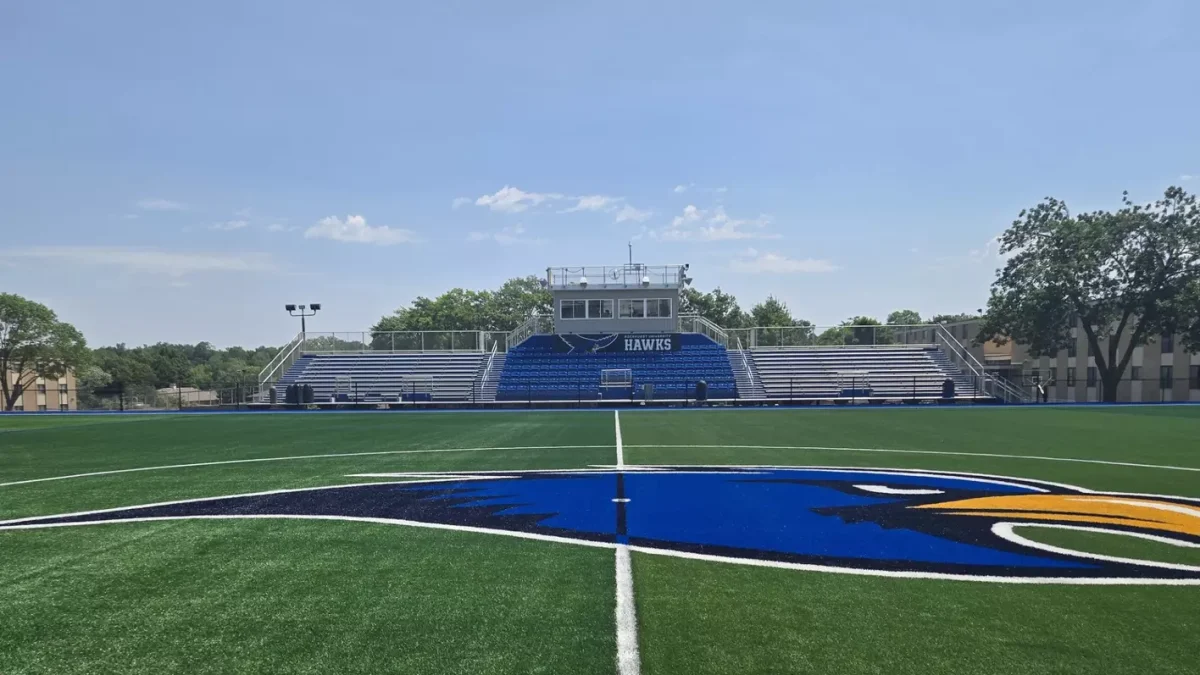On Oct. 15, 2024, the Delta Sigma Pi (DSP) Nu Omega chapter meeting ended with an abrupt and unexpected announcement. After 25 years as an active professional business fraternity, the chapter revealed it was considering closing, citing a decline in student engagement—a challenge reflected across campus organizations at Rockhurst University.
Founded in 1999, the DSP has been a cornerstone of campus life, organizing professional and networking events like Dinner with the Professionals, Leadership and Ethics Day and professor and speaker panels. The fraternity is also known for its active involvement in service events.
The chapter holds some hope of staying active through a process called receivership, which is when “a voluntary agreement is made between the chapter and Fraternity where the approval and general supervision of the operations and programs of the chapter are vested in a Receiver,” according to the DSP Policies and Procedures Manual. However, this decision is still in progress and will require additional meetings with chapter members, DSP sponsor professor Jamison Shipman, Dean of the College of Business & Technology Myles Gartland and regional DSP representatives.
Senior Rron Traci, President of the Nu Omega Chapter, noted that discussions about closing the chapter have been ongoing for the past three years, particularly in the aftermath of COVID-19. However, exceptionally low participation and membership numbers over the past year ultimately pushed the chapter to take action.
“Even before I was with DSP, it has been on the decline,” said Traci. “But recently though, engagement wise, we threw about four recruitment events and had a ton of people sign up for interviews with a lot of no shows and there have been a lot of low engagement levels from the younger classes. That’s when we really decided to talk about shutting it down.”
Traci highlighted several factors contributing to the chapter’s struggles, including the significant loss of members when a large portion of the group graduated in May 2024. With fewer members remaining, any absences at events have a disproportionate impact on engagement, creating greater challenges for the organization.
Additionally, organizations like DSP are required to maintain a national status, which involves regular reporting to a National Fraternity Council. This workload falls heavily on the executive board, and without sufficient support from other students, members often feel their efforts are unreciprocated, leading to burnout.
DSP is not the only club that has experienced a loss in participation. Many clubs and organizations at Rockhurst have reported lower membership levels than in the past.
“The primary reason is low engagement levels from students and prospective students not showing interest. That’s not just a DSP thing. It’s been declining since COVID,” said Traci.
For example, Idea Lab, a student-led organization characterized as an innovation incubator is facing similar struggles. Junior Lars Yarkosky, president and founder of Idea Lab reported that membership has been cut in half from 12 to six active members just this year.
“I don’t think that our Rockhurst student body is unmotivated but rather that they are uninformed of how much extracurriculars can help on resumes, or even for exploring interests. I think that making a weekly time commitment to something that isn’t graded seems unimportant,” said Yarkosky. “However, I believe that as students we should be applying what we learn in classes to work on something notable. From my perspective, having relevant experience using the things we learn about is the best way to make our learning applicable.”
Another prominent organization facing membership challenges is Student Senate. As the university’s student government, the group plays a vital role in representing the student body, organizing events like Midnight Breakfast and Senate Leadership Week and advocating for student rights. They also oversee the approval, funding and support of all student-led organizations on campus. However, as of 2024, they have struggled with retention and recruiting new members, leaving nine seats vacant—something uncommon in its history.
“Senate has touched on this issue lightly in different meetings over the semester and we would say it’s more of a campus-wide issue,” said three-time Student Senate member junior Tyler Broxterman. “As a team, we are always trying to find new events to host that students will enjoy to regain engagement on campus.”
Several factors may contribute to the declining interest in campus involvement. One potential reason is Rockhurst’s commuter-heavy student population, with many students reluctant to return to campus for meetings at inconvenient times after their classes. Another factor could be lingering effects from COVID-19, as seen with DSP. The pandemic may have reduced students’ motivation to participate in organizations after a year of inactivity or led to a temporary post-COVID participation spike that has since leveled off. Additionally, the fundraising requirements and membership fees associated with many clubs and organizations can deter students from joining.
Whether this trend will persist or student involvement will rebound remains uncertain.


